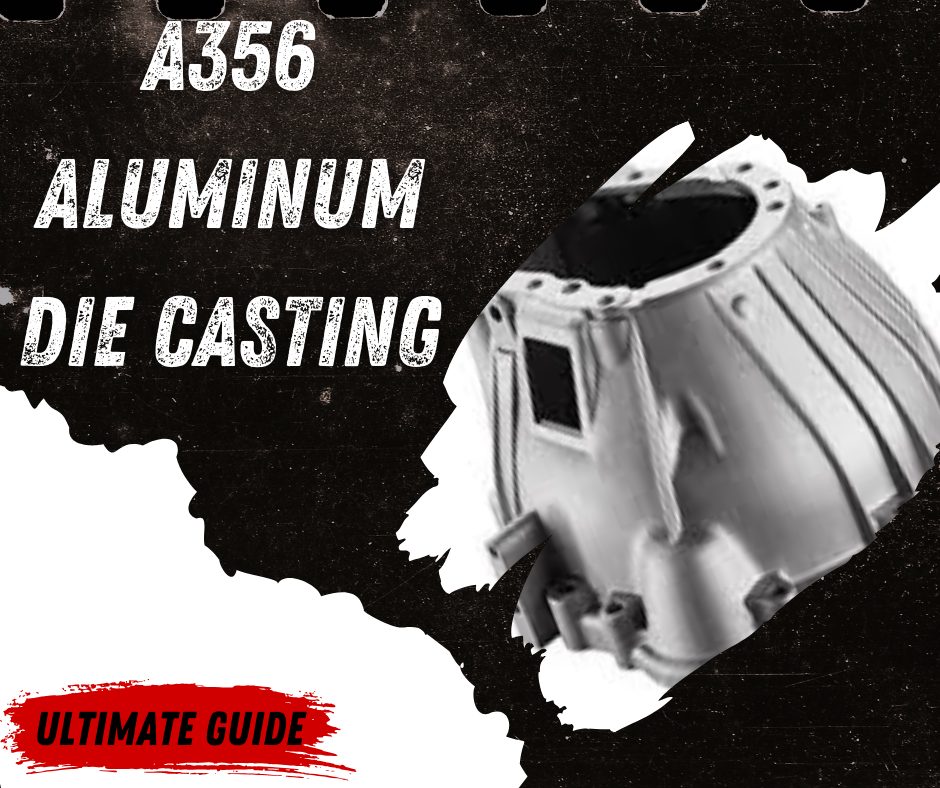Alcast Company for Dummies
Alcast Company for Dummies
Blog Article
Unknown Facts About Alcast Company
Table of ContentsThe Greatest Guide To Alcast CompanyOur Alcast Company StatementsThe 8-Minute Rule for Alcast CompanyThe Alcast Company DiariesOur Alcast Company StatementsRumored Buzz on Alcast Company
The subtle difference lies in the chemical content. Chemical Contrast of Cast Light weight aluminum Alloys Silicon promotes castability by decreasing the alloy's melting temperature and improving fluidity throughout casting. It plays a critical duty in allowing complex molds to be filled up accurately. Furthermore, silicon adds to the alloy's strength and use resistance, making it beneficial in applications where sturdiness is critical, such as vehicle components and engine elements.It additionally improves the machinability of the alloy, making it simpler to refine into ended up products. This way, iron adds to the total workability of aluminum alloys. Copper enhances electric conductivity, making it useful in electrical applications. It also improves deterioration resistance and adds to the alloy's general stamina.
Manganese adds to the toughness of light weight aluminum alloys and enhances workability (aluminum casting manufacturer). It is frequently made use of in functioned light weight aluminum products like sheets, extrusions, and accounts. The existence of manganese aids in the alloy's formability and resistance to splitting throughout fabrication procedures. Magnesium is a lightweight element that supplies toughness and impact resistance to light weight aluminum alloys.
The Facts About Alcast Company Uncovered
It enables the manufacturing of lightweight parts with superb mechanical residential properties. Zinc boosts the castability of light weight aluminum alloys and helps control the solidification procedure throughout casting. It improves the alloy's strength and firmness. It is typically found in applications where elaborate shapes and fine details are required, such as attractive spreadings and specific vehicle components.

The main thermal conductivity, tensile stamina, return strength, and prolongation differ. Amongst the above alloys, A356 has the highest possible thermal conductivity, and A380 and ADC12 have the cheapest.
Alcast Company for Beginners

In accuracy spreading, 6063 is appropriate for applications where elaborate geometries and premium surface coatings are paramount. Instances include telecommunication units, where the alloy's premium formability permits smooth and cosmetically pleasing layouts while preserving architectural stability. In the Lights Solutions industry, precision-cast 6063 elements produce elegant and effective illumination components that call for detailed forms and good thermal performance.
It leads to a better surface coating and far better corrosion resistance in A360. The A360 visit here shows remarkable elongation, making it optimal for facility and thin-walled parts. In accuracy casting applications, A360 is fit for markets such as Customer Electronic Devices, Telecommunication, and Power Devices. Its improved fluidness permits elaborate, high-precision elements like smartphone casings and communication gadget housings.
Everything about Alcast Company
Its distinct properties make A360 a beneficial option for precision casting in these sectors, boosting item durability and quality. Light weight aluminum alloy 380, or A380, is a commonly used spreading alloy with several distinctive qualities. It offers excellent castability, making it an ideal option for precision spreading. A380 exhibits excellent fluidness when molten, guaranteeing elaborate and thorough molds are precisely duplicated.
In precision casting, aluminum 413 shines in the Customer Electronic Devices and Power Equipment industries. This alloy's superior corrosion resistance makes it an outstanding option for outdoor applications, guaranteeing lasting, resilient items in the mentioned sectors.
Alcast Company - Truths
When you have actually chosen that the aluminum die casting process appropriates for your task, a critical following step is picking the most appropriate alloy. The light weight aluminum alloy you choose will substantially influence both the casting process and the residential or commercial properties of the end product. Because of this, you must make your choice meticulously and take an educated approach.
Identifying the most ideal aluminum alloy for your application will imply considering a large selection of features. These comparative alloy features follow the North American Pass Away Spreading Association's standards, and we've divided them right into 2 classifications. The initial category addresses alloy qualities that impact the manufacturing process. The second covers characteristics affecting the residential or commercial properties of the last product.
Indicators on Alcast Company You Should Know
The alloy you select for die casting directly impacts numerous facets of the spreading process, like how easy the alloy is to collaborate with and if it is vulnerable to casting issues. Warm cracking, likewise referred to as solidification splitting, is a typical die casting problem for aluminum alloys that can cause interior or surface-level rips or cracks.
Specific light weight aluminum alloys are much more vulnerable to hot cracking than others, and your choice ought to consider this. Another typical defect discovered in the die casting of light weight aluminum is die soldering, which is when the cast sticks to the die walls and makes ejection difficult. It can harm both the cast and the die, so you must try to find alloys with high anti-soldering properties.
Rust resistance, which is currently a notable feature of light weight aluminum, can vary substantially from alloy to alloy and is a vital particular to consider relying on the environmental conditions your product will certainly be subjected to (Aluminum Castings). Wear resistance is one more residential property commonly looked for in light weight aluminum products and can separate some alloys
Report this page